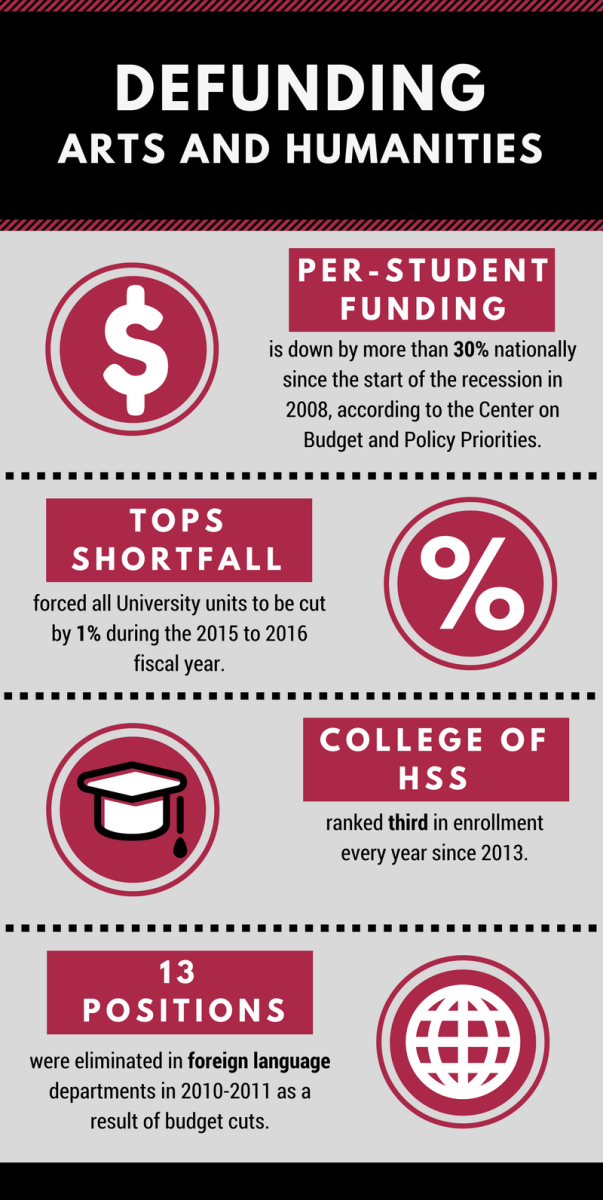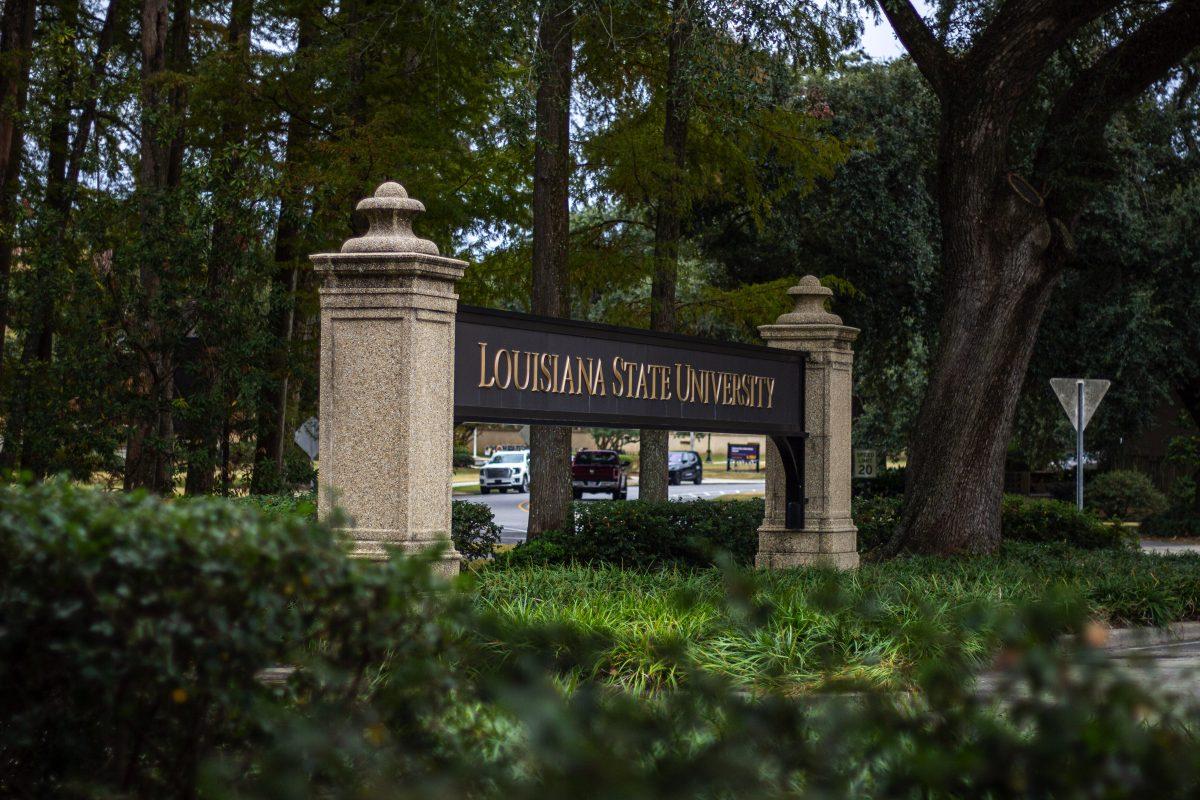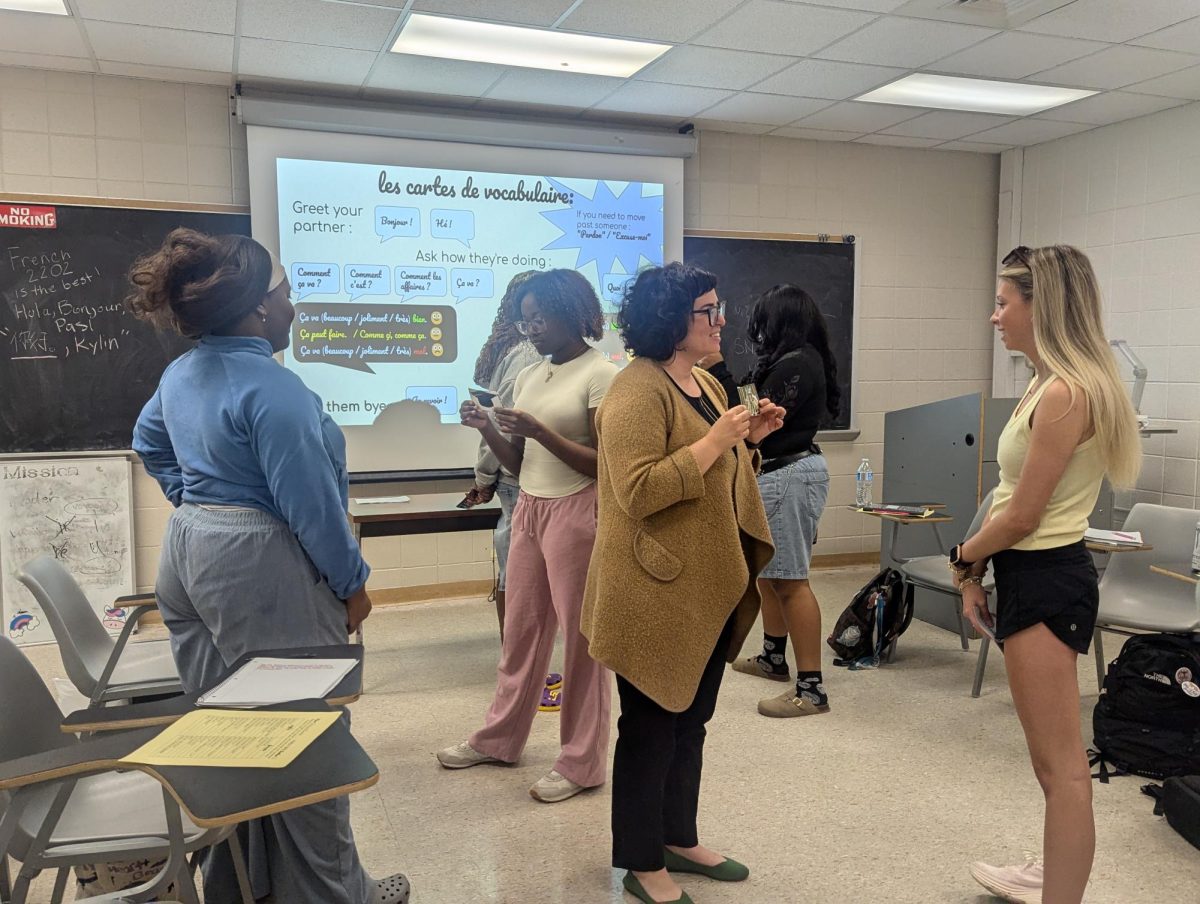While elected officials may dispute different ideas of solutions to combat Louisiana’s budget crisis, many citizens can agree that the state’s higher education system, particularly the University, has taken a big hit over the past decade.
Stacia Haynie, the dean of the College of Humanities and Social Sciences, said states have generally decided to disinvest in publicly funding higher education altogether.
The average state is spending $1,598, or 18 percent, less per student than before the recession in 2008, according to the Center on Budget and Policy Priorities.
The CBPP states the per-student funding in nine states — Alabama, Arizona, Idaho, Illinois, Kentucky, Louisiana, New Hampshire, Pennsylvania and South Carolina — is down by more than 30 percent since the start of the recession.
Haynie said the University’s tuition costs used to cover roughly 30 percent of a student’s cost of attendance and the state was responsible for covering the rest. However, she said over the past few years, the University has required students and their families to pay the majority of the costs with approximately only 20 percent of assistance from the state as a result of budget cuts.
Tommy Smith, associate vice president of Budget and Planning and vice provost for Finance, said the University has tried to protect the academic core so that the administrative unit, efficiencies and tuition and fees increases, absorbed most of the cuts.
“We don’t have fluff,” Haynie said. “We have people. So when you say there’s a cut, then you’re eliminating the number of people who can be there in the classrooms for our students, the number of support people who can be there for advising our students or other kinds of investments. That’s where the pain has been.”
Smith reported that all University units were cut 1 percent during the fiscal year 2015 to 2016 due to the Taylor Opportunity Program for Students shortfall that state universities were required to fund. He said that cut was only for that fiscal year and was not permanent.
In addition to higher education budget cuts, the importance of humanities and arts funding is being debated at the national level.
Currently, two “We the People” petitions, located on the White House’s website, plead for President Donald Trump to support the National Endowment for the Humanities and the National Endowment for the Arts by choosing not to defund them.
The petitions require 100,000 signatures by Feb. 20. to receive a response from the White House. Both petitions have now exceeded that goal.
J. Gerald Kennedy, a retired English Boyd professor, said he has seen many changes since his start at the University in 1973, including a shift in emphasis away from humanities education and toward the science, technology, engineering and math (STEM) disciplines. He said he thinks students have started becoming advised to push toward jobs and money as there has been a “privileging of STEM disciplines.”
“What we’re seeing is a reprioritizing of higher education to make its object the generation of the workforce to add to the economy of the state,” Kennedy said. “There is very little attention now to the original historical work of the university, which is to educate people, to teach them to use their intelligence, to ask questions, to think critically, to read closely and interpretatively.”
Kennedy said there is a strong political dimension to the disregard of importance of the humanities disciplines and that a lot of people in government would prefer “people who could be led like sheep.”
He said he has seen what has appeared to be a decreased value for the humanities departments at the University and an increase in capital improvements and recruiting for the other colleges.
However, the College of Humanities and Social Sciences at the University has ranked third in enrollment since 2013, surpassed only by the University College for Freshman Year and the College of Engineering, respectively. Before 2013, the College of HSS was ranked second highest in terms of enrollment, only being exceeded by UCFY.
Being one of the most populated colleges in the University, the college also receives the most funding allocated each year. However, the college has seen a cut in capital improvements and to the foreign languages department.
Haynie said the resources to provide renovations for buildings and classrooms have not been available due to the urgency to protect the University’s academic core.
“You can only spend it once,” Haynie said. “You can imagine that we’d like to renovate this classroom, but if we have a great classroom and we’ve not been able to hire the faculty member to be in there to teach the student, then that’s probably not the best use of your money.”
In the academic year year 2010 to 2011, 13 positions in the foreign languages were eliminated as a result of budget cuts, according to Smith.
Kennedy said he did not want to make any argument that STEM disciplines are not needed, but instead that the humanities should remain the core of the University.
“It’s where students develop some sense of history, a sense of culture they live in, of the complexity of the world they live in, of the intricacies of human psychology and personality,” Kennedy said.
The National Endowment for the Humanities, one of the largest funders of humanities programs in the U.S., and the National Endowment for the Arts, which offers support and funding for projects exhibiting artistic excellence, are two independent federal agencies created by Congress in 1965. Both endowments are at risk of being defunded, according to the petitions.
The NEH reported a budget decline of 70.2 percent between 1979 and 2014. It reported $146.02 million in appropriations for 2014 and 2015.
The NEA reported that its $146 million budget represents just one-hundredth of 1 percent of federal discretionary spending and reported a $21.5 million decline in appropriations from 2010.
Haynie said she feels there is a fallacy of logic in government policies that suggest reducing non-STEM disciplines, like humanities, to address the STEM deficit as if students are no longer interested in pursuing liberal arts educations.
The College of HSS has awarded the most baccalaureate degrees every year since 1999 except for school years 2000-2001 and 2001-2002. During those two school years, business administration reportedly awarded more baccalaureate degrees to students, according to the college trend data information on the University’s Budget and Planning webpage.
She also said the notion that students who graduate with a liberal arts degree are not successful is a frustrating concept as many former University students have gone on to become CEOs, partners, attorneys, founders and ambassadors for various business and organizations.
One particular graduate of the college, Stephen Herbert, is now the chairman and CEO of USA Technologies Inc., the platform for Apple Pay. He graduated from the University in 1986 with degrees in general studies, business and psychology.
“The work that is being done by this faculty is stunning,” Haynie said. “Despite all of the challenges, [the University] is an exceptional institution, and it is an amazing thing for students to be here and be a part of that and for us as faculty and administration to work on behalf of students.”
Amid statewide budget cuts, humanities and arts disciplines face threat of being defunded at national level
February 14, 2017
HSS graphic
More to Discover









